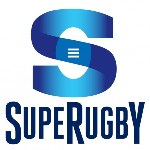

Brendan Venter
Prior to our 1995 World Cup-winning campaign, the late Kitch Christie told us during one particular team meeting that we could either take the high road or the low road to reach the knockout phase writes Brendan Venter.
While we followed the former path having defeated Australia in our opening match, the Sharks’ class of 2014 have taken the latter route. Although more arduous, nothing is impossible in the oval game.
SuperSport
Sure Jake White’s men have had to traverse the Tasman but I’m of the view that there are chinks in the Crusaders’ armour which can be exposed.
The Sharks won’t be able to dominate the Crusaders’ pack as they did the Highlanders’, however, as a back-four; the men from Christchurch are purely not as penetrative as their compatriots.
This is a well-coached, well-organised, hard-working Crusaders team but fundamentally it’s void of significant game-breakers who can spark moments of magic and cross the gain-line almost at will.
The Crusaders lack the game-breaking ability of a Ben Smith, for argument’s sake. The All Black punched holes in the Sharks’ defence all day and had a huge part to play in all three of the Highlanders’ tries last Saturday in Durban. He’s a brilliant game-breaker and proven match-winner.
While the Crusaders boast the likes of Israel Dagg and Nemani Nadolo in their backline, as a composite back-four division they lack the cut and thrust which the Highlanders displayed in bucket-loads during the second Super Rugby qualifier, particularly on the counter-attack and in broken play.
Make no mistake, Todd Blackadder’s charges will give the ball air and adopt a keep-the-ball mentality endemic to all New Zealand teams.
However, I would argue that playing “too much” rugby could well lead to their demise against a side that plays a prototypal South African style.
Cast your minds back to the Sharks’ 30-25 win over the Crusaders earlier in the season, as a case in point.
With the visitors still down a man, the Crusaders were well on course to win the encounter. However, from the ensuing kick-off, the home side ran the ball and were subsequently turned over. As that passage of play advanced, the Sharks scored what proved to be the match-winning try.
In the aftermath, a great majority of pundits labelled the victory a fluke, which I wholeheartedly disagreed with. In spite of playing with 13 men at one point during the match, the Sharks prevailed.
Although the Sharks possess a plethora of game-breakers in their side, by and large, they rely heavily on a territorially-driven, defence-orientated game strategy which has served them well this season.
Increasingly, teams with less ball possession are prospering. The Sharks, for instance, are notoriously strong against sides that run the ball back, with an offensive defence one of their primary weapons.
Generally, the Sharks prefer a team running back at them than having to enter into an aerial battle.
However, White would surely have identified Nadolo as a weak link in the Crusaders’ chain, when it comes to tracking back. Therefore, expect Nadolo to be subjected to an aerial bombardment.
While the Fijian-born flyer is a superb physical specimen standing 1.94 metres tall and weighing an impressive 125 kilograms, his frame is as much a blessing as it is a curse.
While invariable comparisons have been drawn between Nadolo and the legendary Jonah Lomu – 1.96 m and 119 kg – both men’s “Kryptonite” revealed itself whenever the ball was kicked in-behind them.
Although their bulk can be an asset on offence, equally it can prove a liability on defence.
In closing, I would suggest that both the Crusaders and the Waratahs, for that matter, are tailor-made for the Sharks to beat, as said teams believe staunchly in a ball-in-hand philosophy.